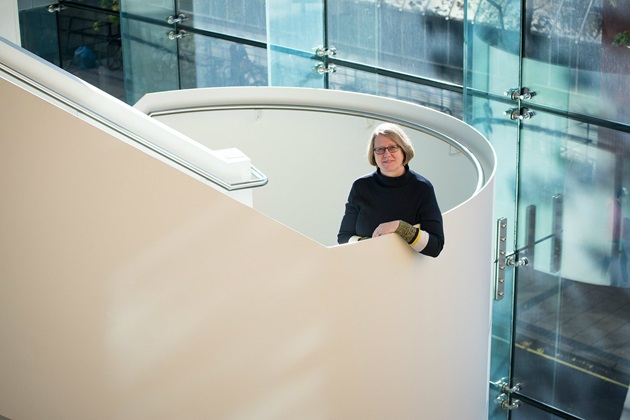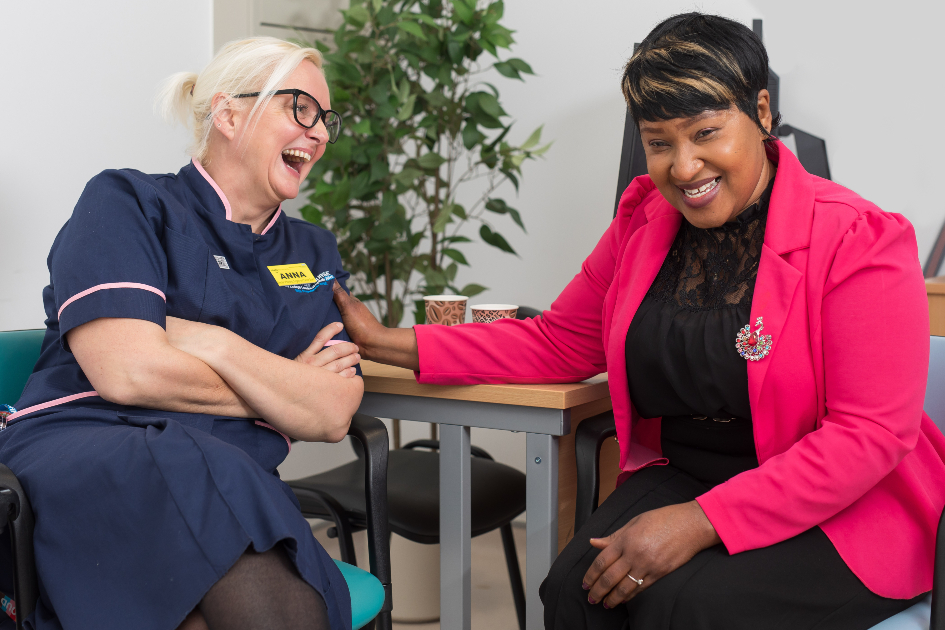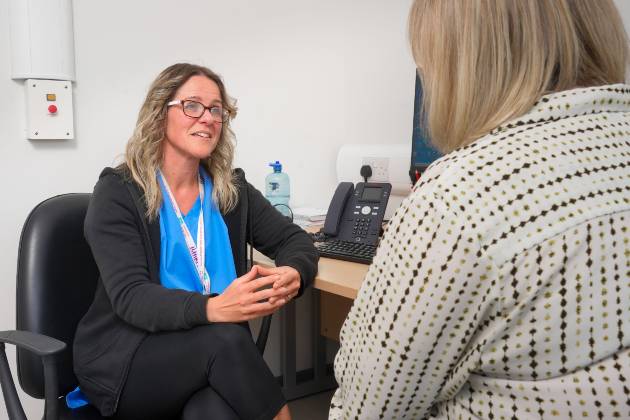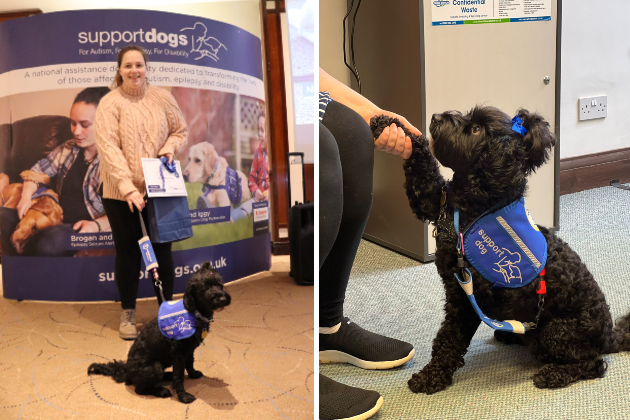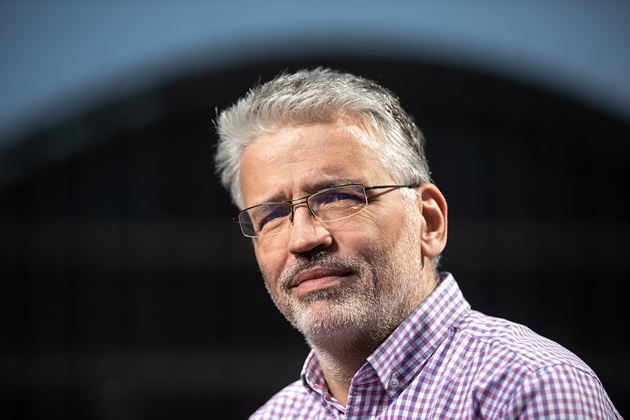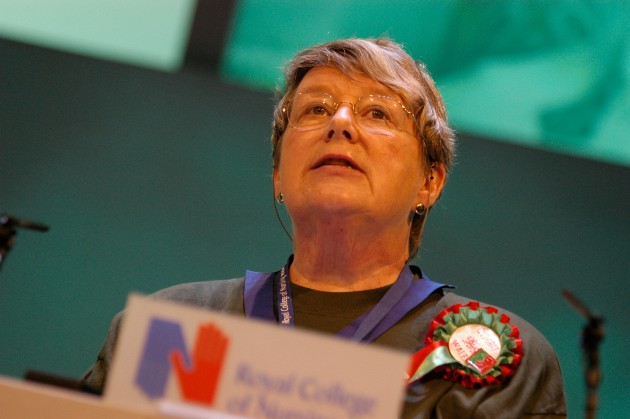In 1977, Helen Cherry became one of the first deaf people to begin nurse training. Helen has severe to profound deafness, meaning that she has little to no hearing without the benefit of hearing aids. She lost her hearing as a child but, having already learnt to speak and lip-read, was not diagnosed until she went to school and her hearing challenges became more apparent. When she left she wanted to train to be a nurse.
“It took me about a year to find a school that would take me,” she says. “Brighton School of Nursing was the only one to respond. In the interview, they really challenged me on my difficulties but they weren’t trying to put me off, they just wanted to openly discuss how we could make it work. They were a very forward-thinking school and were more focused on what I could do rather than where I may struggle.”
Helen became a state enrolled nurse (SEN) through pupil nurse training, then moved on to qualify as a state registered nurse (SRN). She found the majority of people understanding and helpful, willing to find solutions to difficulties faced rather than make problems out of them.
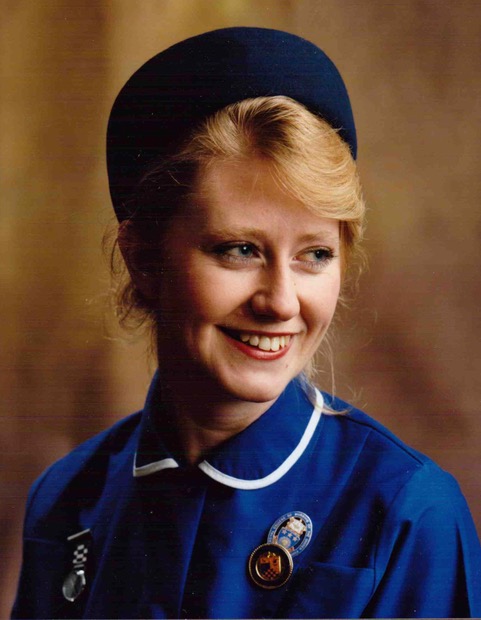
“I was fortunate to have supportive colleagues and we worked as a team, trading off on certain tasks. I’d do temperature rounds and they’d answer calls or do the manual blood pressure readings for me, which required listening through a stethoscope,” says Helen.
With earlier hearing aid technology not well suited to lots of noise, the acoustics of a hospital weren’t preferable for Helen and she chose to go into district nursing, becoming a sister in 1986. Being with people in their own environment was where she felt she could make a difference.
People with disabilities bring a wealth of experience to nursing
“One of the things that took me into nursing was that I knew what it felt like to be misunderstood. This has allowed me to empathise and help patients overcome anxieties and difficulties.”
Helen's career flourished and in the late 80s she followed a lifelong dream to travel, moving overseas to work firstly in Australia and then India in early HIV/AIDS projects. One of the many roles she undertook was heading up a team in Tasmania that was tracing haemophiliacs who had unknowingly contracted HIV through infected blood. She went on to present a paper on integrated patient care between Volunteer HIV/AIDS services and Royal District Nurses services at the 4th international AIDS conference in Canberra.
“Being deaf didn't stop me from my ambition to work overseas and experience more of the world. I hope my experiences will encourage other D/deaf nurses to realise what they can achieve,” Helen says.
Helen is currently working in education, co-facilitating sessions in health and social care at London Southbank University’s innovative People’s Academy. “I think people with diverse disabilities bring a wealth of their own experience to nursing,” she concludes.
Big ‘D’ Deaf
Used for people who are born Deaf or became Deaf before spoken language is acquired and regard their deafness as part of their identity and culture rather than as a disability. They form the Deaf Community and are predominantly British Sign Language (BSL) users.
Small ‘d’ deaf
Used for those who may have become deaf, deafened or hard of hearing after they have acquired a spoken language, any time in life. Lower case d is more often used to define hearing loss.
Communication is key
When nursing degrees were becoming popular in the 90s, nursing was closed off further to D/deaf nurses and it was only after a decade of campaigning by the British Society for Mental Health and Deafness that the first D/deaf nurses graduated in 2004.
The benefits of being able to provide D/deaf nursing staff to care for D/deaf mental health service users has been clear. RCN member Jackie Wan (pictured above left with a colleague) is a Deaf community nurse who works within the Deaf Adult Community Team (DACT) at Springfield University Hospital, which provides inpatient and outpatient mental health services to D/deaf children and adults. The staff mix includes D/deaf and hearing professionals working together, all of whom use sign language.
“The health of D/deaf people is generally quite poor for any number of reasons but communication can be one of the main factors,” says Jackie. “Having health care staff they can properly communicate with, either directly or through an interpreter, is vital. Especially when dealing with mental illness.”
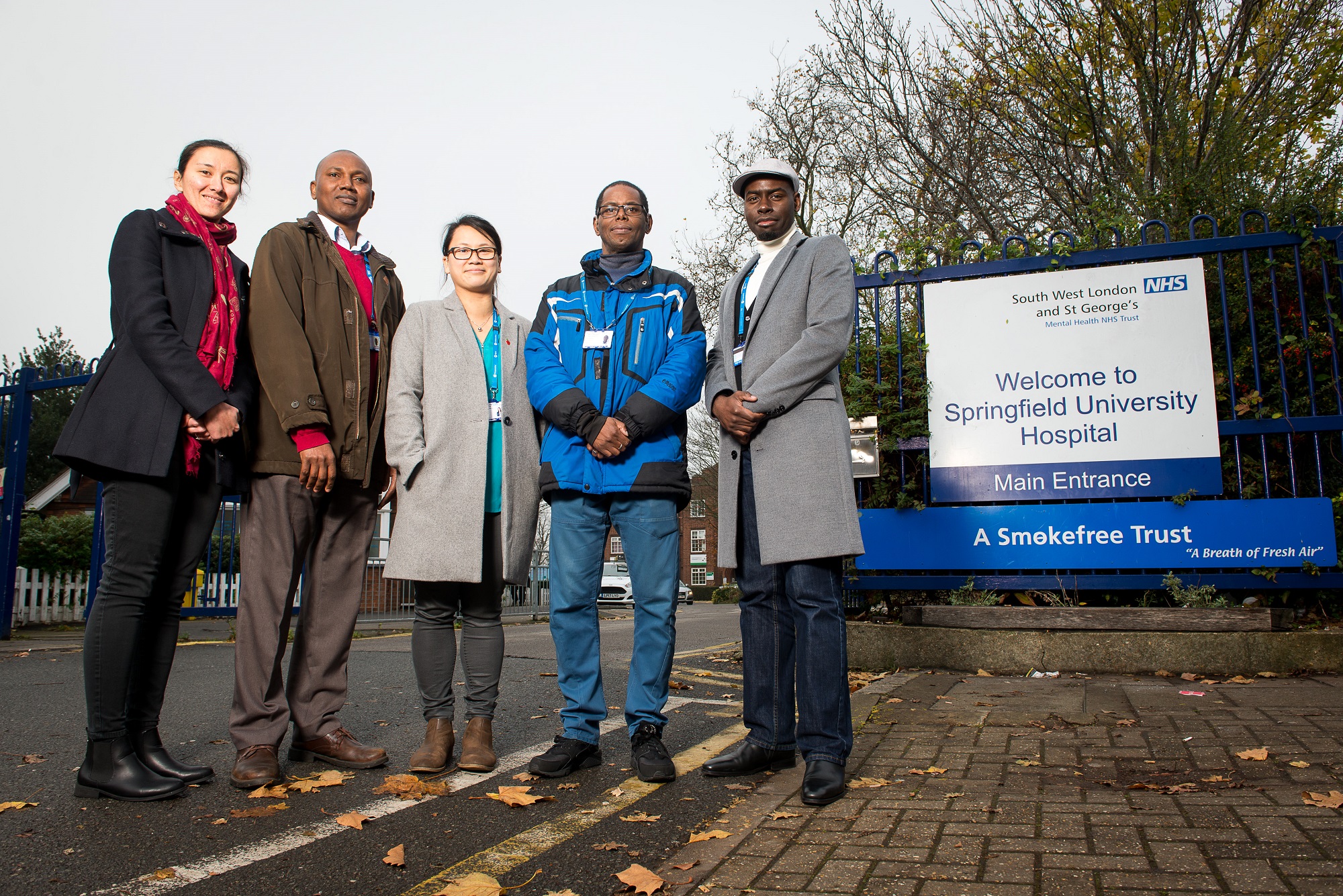
Jackie trained as part of the third cohort to be taken onto a mainstream course in mental health nursing with reasonable adjustments made for D/deaf students at Salford University. The growing number of D/deaf nurses from this and other courses is proof that there is no reason D/deaf students cannot flourish, given the right access.
“The course was very well organised,” Jackie adds. “The majority of my placements were within D/deaf environments but even in hearing placements there were always interpreters, taken from the same pool of interpreters who knew us and the course, and lectures always had interpreters and note takers as well so it was very smooth.”
Since qualifying, Jackie has been working tirelessly to improve services for D/deaf patients.
“As a qualified nurse, I could have worked with hearing people as well but my passion is really in supporting the D/deaf community. I recognise their challenges and struggles and felt strongly that I wanted to work supporting them,” Jackie says.
In 2016, Jackie won the Best Deaf Role Model award for her work supporting D/deaf people and being a leading example of what D/deaf people can achieve.
Opening up opportunities
Kathy Martyn, Disability Liaison Tutor at Brighton University, talks about the continued struggle to change perceptions within health care
I completed my PhD on inclusion within the workplace and my research revealed that there is still a narrow perspective within the NHS of what a nurse should be like. Mainly this comes down to negative preconceptions about adjustments required and the effect this will have on the workplace.
Obviously, each individual is different but a lot of adjustments will be quite minor and are in fact beneficial for the general working environment through improvement of overall communication and understanding. Things like talking clearly, not talking over one another, improving lighting and maintaining eye contact, for example.
It's only through illustrating how things could be that perceptions will change
In a busy hospital setting, small things like this are often overlooked and, not only would they be reasonable adjustments for a lot of D/deaf nurses, but poor communication is often at the root of a lot of issues in clinical environments.
It’s only through illustrating how things could be that perceptions will change and that is what we are trying to do by encouraging all aspiring students to feel confident that they will have any support required. We will miss out on a lot of amazing nurses otherwise.


